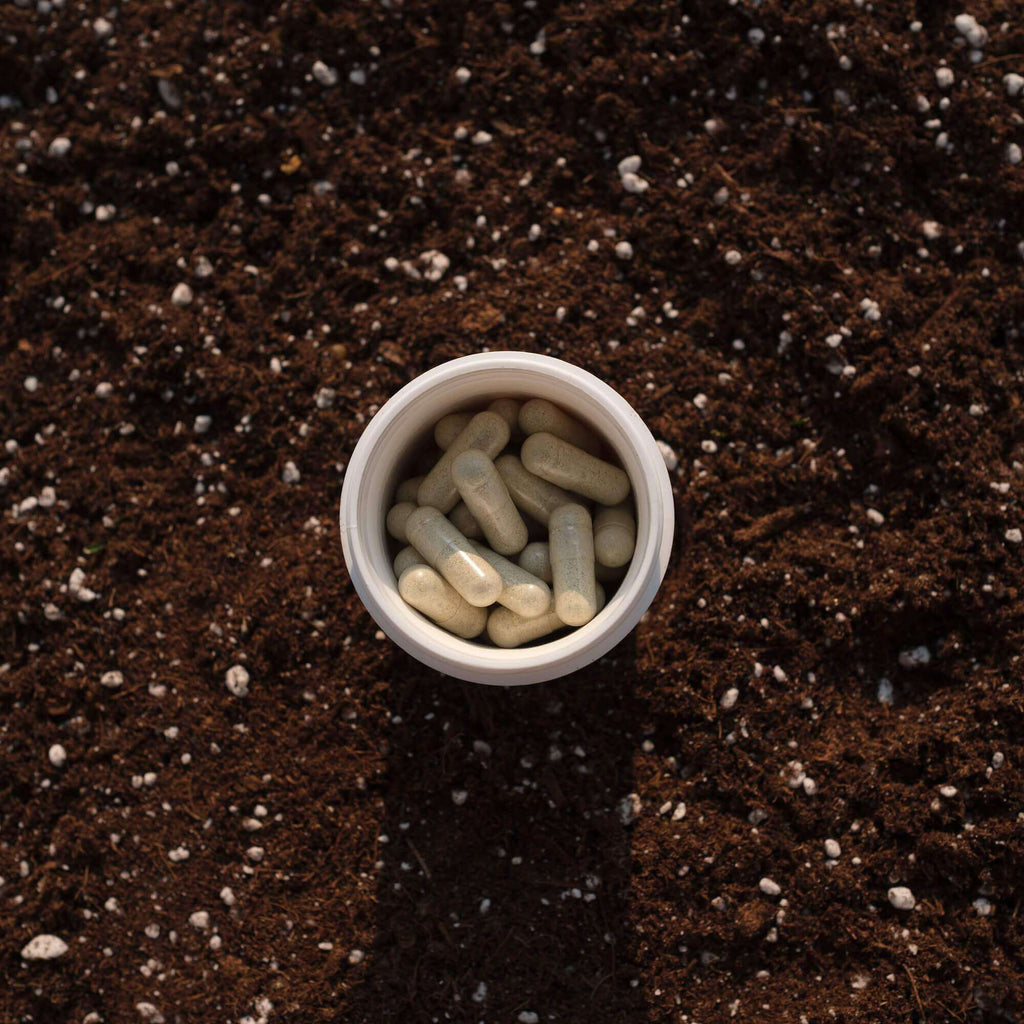Dr. Eric Wood, ND, MA - Contributing Writer, Physician’s Choice
Nowadays, more and more people are discovering the benefits of probiotics. The popularity of these gut-friendly microorganisms is flourishing in both supplements and fermented foods. Whether you're looking to improve your gut health, mood, or immune function, the power of probiotics has become more clear than ever.*
This article will take a deep dive into the benefits of soil-based probiotics and explain how this formula compares to others on the market.
What are soil-based probiotics?
Throughout the bulk of human history, humankind maintained a symbiotic relationship with the earth and its food chain. Part of that symbiosis involved ingesting small amounts of dirt and the accompanying probiotic organisms found within it. Today, research has illustrated that the native probiotics found in healthy soil likely played a key role in supporting human immune and digestive health for millennia.
Due to modern farming practices, most individuals today are not receiving these native probiotics from the foods in their diets. This is, in part, due to food safety habits like washing and scrubbing produce. These habits wash away almost all traces of dirt, leaving individuals with little-to-no chance for organic consumption of these "good" bacteria.
Soil-based probiotics are microorganisms living in the soil that are believed to support the health of the microbiome. Due to the resilient nature of their spore-like structure, they're well-equipped to survive the harsh acidic environment of the stomach on their journey to the lower intestines. There, the environment is much more conducive to their survival and germination.
In the gut, soil-based microorganisms transform into an active bacterial agent that can multiply, grow, and integrate into one's existing microbiome. This process provides promising potential for supporting and improving whole-body health.
The difference with soil-based probiotics
Many probiotic supplements are derived from milk-based cultures. Without acid-resistant encapsulations, the majority of those probiotics won’t survive the acidic environment of the stomach. As a result, researchers suggest that many people relying on yogurt or lactic-acid-based probiotics will experience little tangible impact on the long-term health of their microbiome.
This contrasts considerably with soil-based probiotics. As noted earlier, these are introduced to the body in the form of a spore. These spores are uniquely resistant to stomach acid and don't transform into bioactive probiotic bacteria until they’ve made it to the large intestine. There, they will germinate and seed in the bowel, providing a direct benefit to your microbial flora and potential gut health.*
Soil-based probiotics tend to be more effective than dairy-based probiotics in colonizing the large intestine and improving microbiome health. This means you’re more likely to notice the effects of improved gut health from soil-based formulas. This may be especially important if you’re trying to repair occasional imbalances in your gut.

Clinical advantages and disadvantages: What the research suggests
The research on probiotics so far has largely supported soil-based organism supplementation as beneficial for health. More research is needed to assess this hypothesis and discern any potential risks. To date, however, the majority of research has reported positive effects from a considerable number of strains.
That said, there are some limitations to research on soil-based probiotics used in commercial supplements. Some practitioners and researchers have raised caution that they could compete with native species of the microbiome acquired from birth, breastfeeding, and during early infancy. These professionals believe this could potentially cause issues for certain people.
For those erring on the side of caution, you may want to seek out supplements using the most heavily researched strains. These strains include Bacillus coagulans, Bacillus subtilis, Bacillus clausii, and Clostridium butyricum.
Soil-based probiotics and immune health
Research has illustrated beneficial effects of microbiome health in supporting immune function. Specifically, soil-based probiotics have been shown to support and maintain healthy, normal levels of secretory IgA, an immunosurveillance molecule in the intestines. To my clients, I often describe secretory IgA as your “night watchmen.”
These molecules patrol your intestinal lining to seek out any suspicious “intruders” (i.e., unwanted microbes or microorganisms). If they detect something suspicious, these “watchmen” will signal to alert key immune defenders to come and prepare for battle. Maintaining optimal levels of secretory IgA has shown to promote healthy immune function.
In summary
By and large, research suggests soil-based probiotic formulas are safe and effective. Research also suggests they can improve microbiome health and related factors, including immune health, mood support, digestive function, and more.*
Research is ongoing to understand all the potential benefits and downsides associated with specific probiotic strains. But with modern changes in dietary habits, agriculture, and food preparation, many people are likely to benefit from increasing their consumption of these native microorganisms.
In your search, look for science-backed soil-based probiotic formulas using more than one targeted strain and CFUs dosed based on clinically validated studies. With these guidelines in mind, you’ll be on your way to elevated gut wellness.